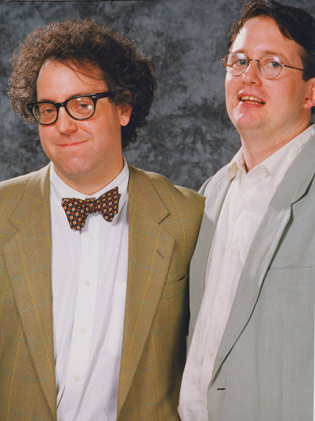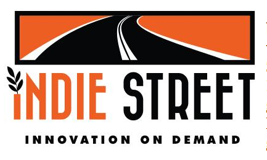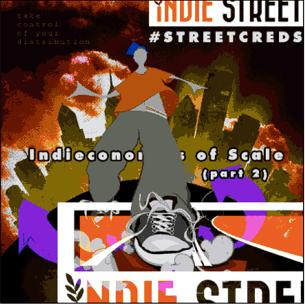It’s not where I care to hang, but I do dig both the style of animation and the mood and tone Joseph Pierce captured. Very well done piece.
The Pub from Joseph Pierce on Vimeo.
It’s not where I care to hang, but I do dig both the style of animation and the mood and tone Joseph Pierce captured. Very well done piece.
The Pub from Joseph Pierce on Vimeo.
One year ago today, I gave this speech.

I don’t think we can get a clearer marker that times have fully changed in the Film Biz than James Schamus leaving Focus Features. And this is a curve that is not in a positive direction.
With his bow tie no longer the Focus brand, we can firmly say that the corporate suits see no business in art. James made money from beauty, found gold by reaching higher,
If you have half a brain and STILL want to invest in the film business, you know you need access to one thing: quality projects. But how do you get that? The truth is that accessing quality projects is a barrier to entry for any but those of the deepest pockets. Sooner or later most wise investors realize that are shut out of the top projects and their only chance of success is dumb luck. If we want to develop a sustainable investor class, we need to develop a method for them to participate in true quality.
If new financiers don’t find the quality projects, chances are they won’t last. How is the industry to sustain, let alone grow and evolve if it is just the same old same old? We need a plan to
This is my recent FERA Keynote speech (London, UK BFI South Bank,September 27, 2013 145PM):
Children love playing “The Opposite Game” where “yes” means “no”, and “no” means “yes”. Politicians seem to love to play that game too…
This backwards world has infected many of our cultural fields,taking hold as an everyday concept reflected in our every action. In comics, it is known as the “Bizarro” World, a common plot scenario where our strength becomes our weakness. That is of course a fictional conceit, but in the world of cinema, we all now too truly inhabit a similar land of opposites, where what we say we love to do is not what we do at all.
By Jay Webb

Previously: IndieStreet Post #3: “Indieconomies of Scale Part 1”
Indieconomies of Scale, Part 2 (of 3): Production Benefits & Vertical Integration
There is one aspect of business that seems to remain constant no matter the advancements in technology: the pressure placed on producers to create better products for less money…the story telling business is surely not immune to this stress. In my opinion, there is no better way to accomplish greater story-telling on smaller budgets then by having a group of filmmakers that are cooperative, competent, but most importantly, alarmingly passionate about the stories being told.
 When considering how to apply business concepts like economies of scale to Independent film, in the case of production we have to reorganize our thought process a little. In this post, we start by treating a small group of Indie filmmakers as a story producing company with each member having both objective story telling capital (skillset, equipment, etc.) and subjective story-telling capital (interest in project, loyalty, emotional connection to material). The more story-telling capital that can be attained through cooperation, the more a group can benefit from production Indieconomies of scale.
When considering how to apply business concepts like economies of scale to Independent film, in the case of production we have to reorganize our thought process a little. In this post, we start by treating a small group of Indie filmmakers as a story producing company with each member having both objective story telling capital (skillset, equipment, etc.) and subjective story-telling capital (interest in project, loyalty, emotional connection to material). The more story-telling capital that can be attained through cooperation, the more a group can benefit from production Indieconomies of scale.
Traditional Production Economies of Scale
Decreasing Costs per unit: When companies look at production economies of scale, they find a wide range of advantages that stem from increasing their production to a certain level. With the growth of a company’s operation, cost per unit will decrease so per unit profit increases.
By Roger Jackson
Previously: Secret 19-Point VoD Marketing Plan, Part III
We want you films
Kinonation wants your film to distribute to dozens of video-on-demand outlets, with no cost, no risk and 100% integrity. Click to Get Started.
Cutting Checks
We’re now cutting checks to filmmakers for Q2 2013. Very satisfying. It takes a while, since VoD outlets tend to pay 60-90 days after the end of the quarter that the film made money. And then Kinonation has to process the cash, take our 20% and PayPal the rest to the content owner. Not simple, not fast — but we’re doing it and this month will see payments to some of our amazing filmmakers. How much can you make? It’s hundreds at a minimum if you do nothing or if your film just isn’t very good. It’s thousands if your film is good, genuinely impressive. It is tens of thousands if your film is outstanding. And that’s the bottom line — how do you make your film, and the marketing & distribution of your film — outstanding rather than just festival average?
New Outlets
We’re busy signing deals with VoD outlets around the world.